Lead the way in cryptocurrency and networking
Become a specialist in emerging technologies with the Master of Networking – major in Cryptocurrency. This major provides in-depth knowledge of blockchain, cryptofinance and the legal frameworks shaping this dynamic field.
With expertise that’s highly sought after, you’ll be ready to navigate the fast-evolving world of cryptocurrency and blockchain innovation.
DURATION
2 Years (4 Trimesters)Full-Time or Equivalent Part-Time
INTAKES
March,July,
November
LOCATION
Sydney, MelbourneAQF LEVEL
Level 9| Duration 2 Years (4 Trimesters) Full-Time or Equivalent Part-Time | |
| Intakes March, July, November | |
| Location Sydney, Melbourne | |
| AQF Level Level 9 |
TAKE YOUR NETWORKING KNOWLEDGE TO THE NEXT LEVEL
Secure your future in an exciting field with MIT's Master of Networking – major in Cryptocurrency.
Gain hands-on experience with blockchain technologies and cryptofinance tools, alongside industry platforms like Cisco, Microsoft and Azure. Develop the expertise to solve real-world challenges through industry projects that focus on cryptocurrency and blockchain applications.
In addition, this course will develop the soft skills employers are looking for: communication, collaboration and project management.
Other options include:
Set yourself up for a rewarding career in a growing field.
Melbourne Institute of Technology is a leading educator in networking and cybersecurity. This course encourages innovation and creativity. Learn to investigate problems and work with others on learning challenges.
THIS COURSE INCLUDES:
SMALLER CLASS SIZES
Our smaller class sizes mean you get the support you need and classes are more engaging.
ARTIFICIAL INTELLIGENCE
Advance your understanding of AI and machine learning.
SUPPORTIVE TEACHING
We use an academic support program called InSPIRE to tailor our learning to each student.
HANDS-ON-EXPERIENCE
Use the latest tools to learn how to test and strengthen online networks.
LEARN WITH INDUSTRY
Our curriculum is based on solving real world problems. MIT has a strong reputation for Work-Integrated Learning.
WORK READY SKILLS
Graduate with the strategic knowledge and technical skills to find a rewarding job in this growing field.
CAREER PATHS
A career in Cyber Security major could see you working in the following roles:
- Blockchain Developer
- Cryptocurrency Analyst
- Blockchain Solutions Architect
- Cryptographer/Cryptanalyst
- Smart Contract Developer
- Decentralized Application (DApp) Developer
- Blockchain Security Specialist
- Chief Information Security Officer (CISO)
- Information Security Analyst
- Penetration Tester (Ethical Hacker)
- Security Architect
- IT Security Engineer
- IT Security Consultant
- Cybersecurity Specialist
- Digital Forensics Investigator
- DevSecOps Engineer
- Threat Hunter/Analyst
- Network Automation Engineer
You could find work at major organisations including the Australian Defence Force, IBM, CISCO or within smaller businesses or startups. Earning can be more than $100k per annum. .
PROFESSIONAL RECOGNITION AND ACCREDITATION
The Master of Networking is accredited by the Australian Computer Society in the Professional Level, as well as
| TEQSA Higher Education Standards Framework |
Australian Quality Framework (AQF) Level 9 |
OUR APPROACH GIVES YOU THE SKILL AND KNOWLEDGE TO SUCCEED IN YOUR IT CAREER.
The Master of Networking course structure was created to ensure students build up their knowledge in a logical order so they can progress quickly. Our approach allows students to tackle innovative projects and gain valuable industry experience.
Each unit consists of 20 credit points. A full-time study load is 60 credit points per trimester.
MNet comprises ten core units and two electives that may make up a specialisation, such as cybersecurity, cloud networks, project management, cryptocurrency, or smart sensors and automation (see below).
Final year students complete:
MN690 - Research Methods and Project Design; and
MN692 - Capstone Project
Read more about our Industry-Based Projects and Internships
COURSE UNITS
Master of Networking - Course UnitsCommon Core Units
- MN404 Fundamentals of Operating Systems and Programming
- MN405 Data and Information Management
- MN503 Overview of Internetworking
- MN511 Enterprise and Cloud Networks
- MN521 Network Automation
- MN522 Information Security
- MDA513 ICT Practices
- MN603 Wireless Networks and Security
- MN625 Software Managed Networks
- MN690 Research Methods & Project Management
- MN692 Capstone Project
- MN631 Blockchain technologies and strategy
- MN632 Cryptofinance and legal framework
LEARNING OUTCOMES
Graduates of Master of Networking have these learning outcomes:
Possess a body of knowledge that demonstrates an understanding of state-of-the-art developments in the area of Networking:
- by understanding recent developments in the discipline and/or area.
- with knowledge of research principles and methods in a field of work and/or learning.
Be able to investigate and evaluate key network technologies and apply them effectively in an organisation with:
- skills to investigate, analyse and synthesise complex information.
- skills to generate and evaluate complex ideas and concepts.
- communication skills to justify theoretical propositions, methodologies, conclusions.
- technical skills to design, evaluate, implement, analyse and theorise about developments.
Exercise critical thinking and problem-solving ability to tackle complex new problems with:
- mastery of theoretical knowledge, critical reflection on their and practice.
- technical research sills to interpret theoretical propositions, methodologies and conclusions.
- communication skills to argue about design, evaluation and analysis of developments.
Be capable of independent professional work with a high level of autonomy and accountability.
Demonstrate significant research, analysis and evaluation skills in the networking discipline by:
- Planning and executing a substantial research-based project, capstone experience/piece of scholarship.
Be able to adapt their knowledge and collaborate and communicate with others in a professional setting with:
- Creativity and innovativeness to new situations.
ENTRY REQUIREMENTS
To quality for entry you need to have
- Successful completion of Australian Bachelor degree or equivalent.
- For the cognate stream: An Australian bachelor degree or equivalent in Information Technology or a related discipline such as computer science, software engineering, computer engineering or networking.
- For the non-cognate stream: An Australian bachelor degree or equivalent in any other discipline.
- Institute Entry Requirement
- MIT's Admissions Transparency
- MIT Admissions Policy and Procedures
English Language Requirements
| IELTS Academic |
Overall score 6.0 (no band less than 5.5) |
|---|---|
| TOFEL ibt |
Overall score 60-78 with minimum scores: Reading 12, Listening 11, Speaking 17, Writing 20 |
| PTE Academic |
Overall score 52 with (no score less than 46) |
| Cambridge CAE |
CAE score of 169 (no band less than 162) |
ENTRY REQUIREMENTS
To quality for entry you need to have
- Successful completion of Australian Bachelor degree or equivalent.
- For the cognate stream: An Australian bachelor degree or equivalent in Information Technology or a related discipline such as computer science, software engineering, computer engineering or networking.
- For the non-cognate stream: An Australian bachelor degree or equivalent in any other discipline.
- Institute Entry Requirement
- MIT's Admissions Transparency
- MIT Admissions Policy and Procedures
English Language Requirements
IELTS Academic
Overall score 6.0
(no band less than 5.5)
TOFEL ibt
Overall score 60-78 with minimum scores: Reading 12, Listening 11, Speaking 17, Writing 20
PTE Academic
Overall score 52 with no score less than 46
Cambridge CAE
CAE score of 169 (no band less than 162)
Credit Transfer
Students can gain credit for learning already achieved. Applicants are assessed on a case-by-case basis. Learn more about credit transfer. Read more about the process.
Applications for credit transfer must be made before or during orientation and enrollment week.
WE USE THE SAME TOOLS AS INDUSTRY PROFESSIONALS
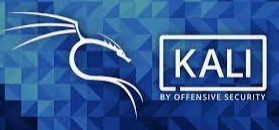





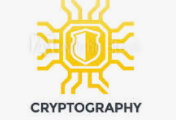
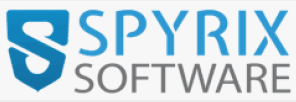
Use industry standard ICT tools, including


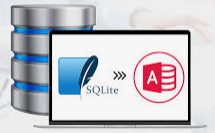

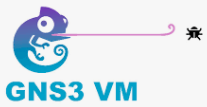

Our state-of-the-art labs allow you to learn new disciplines
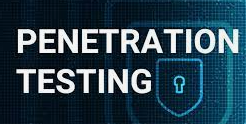


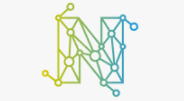

FEE INFORMATION
Study now and pay later with FEE-HELP.Students studying at MIT may be eligible for FEE-HELP. FEE-HELP is a loan scheme that assists eligible fee-paying students to pay their tuition fees. An eligible person may borrow up to the FEE-HELP limit to pay tuition fees over their lifetime.
Read more about FEE-HELP or visit Study Assist.
Tuition feesFor fee information visit the tuition fee page.
Financial assistance
Youth and student allowances
For details on Youth Allowance, Austudy and ABSTUDY, visit Human Services.
FEE INFORMATION
Tuition FeesFor the latest fee information visit the Tuition Fee Page.
If you have any questions regarding fees or payment options, please contact the Admissions Team at enquiries@mit.edu.au
FREQUENTLY ASKED QUESTIONS
What is Cyber Security?Cyber Security is the process of protecting digital products, data, systems and networks from digital attacks. This process involves setting up secure systems and networks, monitoring, recovery from attacks and risk management to prevent attacks.
What can I do with a degree in Cyber Security?Cyber Security is a rapidly growing field as technology changes almost daily. Cyber Security experts work mainly in government and business roles across all industries. Job titles for Cyber Security experts include Information Security Analyst, Penetration Tester, Information Security Architect, Cyber Analyst and Security Engineer.
PREPARING YOUR APPLICATION
Before applying, make sure you:
- Meet the course entry requirements for the course you want to apply for.
- Have all your details ready—for example, your educational history, personal details, academic transcripts and award certificates.
What to include with your application?
- Evidence of completion of your previous studies that is award certificates or transcript with completion confirmed.
- Proof of identity, for example, your passport or birth certificate or citizenship.
- Evidence of English language skills (if you completed studies from a non-English speaking country).
- Proof of your permanent residency or citizenship if you were born overseas.
Certifying your academic documents
You should provide certified copies of your academic and other essential documents at the time of application.
Uploading your documents
You must upload all requested documents at the time of the application.
Learn more about the whole of the institution set here.
Contact us
Phone our friendly student recruitment team on 1800 648 669.
enquiries@mit.edu.au
TAKE YOUR NETWORKING KNOWLEDGE TO THE NEXT LEVEL
Secure your future in an exciting field with MIT's Master of Networking – major in Cryptocurrency.
Gain hands-on experience with blockchain technologies and cryptofinance tools, alongside industry platforms like Cisco, Microsoft and Azure. Develop the expertise to solve real-world challenges through industry projects that focus on cryptocurrency and blockchain applications.
In addition, this course will develop the soft skills employers are looking for: communication, collaboration and project management.
Other options include:
- Cloud Networks
- Cybersecurity
- Project Management
- Smart Sensors and Automation
- Master of Networking - General
Set yourself up for a rewarding career in a growing field.
Melbourne Institute of Technology is a leading educator in networking and cybersecurity. This course encourages innovation and creativity. Learn to investigate problems and work with others on learning challenges.
THIS COURSE INCLUDES:
SMALLER CLASS SIZES
Our smaller class sizes mean you get the support you need and classes are more engaging.
ARTIFICIAL INTELLIGENCE
Advance your understanding of AI and machine learning.
SUPPORTIVE TEACHING
We use an academic support program called InSPIRE to tailor our learning to each student.
HANDS-ON-EXPERIENCE
Use the latest tools to learn how to test and strengthen online networks.
LEARN WITH INDUSTRY
Our curriculum is based on solving real world problems. MIT has a strong reputation for Work-Integrated Learning.
WORK READY SKILLS
Graduate with the strategic knowledge and technical skills to find a rewarding job in this growing field.
CAREER PATHS
A career in Cyber Security major could see you working in the following roles:
- Blockchain Developer
- Cryptocurrency Analyst
- Blockchain Solutions Architect
- Cryptographer/Cryptanalyst
- Smart Contract Developer
- Decentralized Application (DApp) Developer
- Blockchain Security Specialist
- Chief Information Security Officer (CISO)
- Information Security Analyst
- Penetration Tester (Ethical Hacker)
- Security Architect
- IT Security Engineer
- IT Security Consultant
- Cybersecurity Specialist
- Digital Forensics Investigator
- DevSecOps Engineer
- Threat Hunter/Analyst
- Network Automation Engineer
You could find work at major organisations like Australian Defence Forces, IBM, CISCO or within smaller businesses or startups. Earning can be more than $100k per annum.
PROFESSIONAL RECOGNITION AND ACCREDITATION
The Master of Networking is accredited by the Australian Computer Society in the Professional Level, as well as
| TEQSA Higher Education Standards Framework |
Australian Quality Framework (AQF) Level 9 |
OUR APPROACH GIVES YOU THE SKILL AND KNOWLEDGE TO SUCCEED IN YOUR IT CAREER.
The Master of Networking course structure was created to ensure students build up their knowledge in a logical order so they can progress quickly. Our approach allows students to tackle innovative projects and gain valuable industry experience.
Each unit consists of 20 credit points. A full-time study load is 60 credit points per trimester.
MNet comprises ten core units and two electives that may make up a specialisation, such as cybersecurity, cloud networks, project management, cryptocurrency, or smart sensors and automation (see below).
Final year students complete:
MN690 - Research Methods and Project Design; and
MN692 - Capstone Project
Read more about our Industry-Based Projects and Internships
COURSE UNITS
Master of Networking - Course UnitsCommon Core Units
- MN404 Fundamentals of Operating Systems and Programming
- MN405 Data and Information Management
- MN503 Overview of Internetworking
- MN511 Enterprise and Cloud Networks
- MN521 Network Automation
- MN522 Information Security
- MDA513 ICT Practices
- MN603 Wireless Networks and Security
- MN625 Software Managed Networks
- MN690 Research Methods & Project Management
- MN692 Capstone Project
- MN631 Blockchain technologies and strategy
- MN632 Cryptofinance and legal framework
LEARNING OUTCOMES
Graduates of Master of Networking have these learning outcomes:
Possess a body of knowledge that demonstrates an understanding of state-of-the-art developments in the area of Networking:
- by understanding recent developments in the discipline and/or area.
- with knowledge of research principles and methods in a field of work and/or learning.
- skills to investigate, analyse and synthesise complex information.
- skills to generate and evaluate complex ideas and concepts.
- communication skills to justify theoretical propositions, methodologies, conclusions.
- technical skills to design, evaluate, implement, analyse and theorise about developments.
- mastery of theoretical knowledge, critical reflection on their and practice.
- technical research sills to interpret theoretical propositions, methodologies and conclusions.
- communication skills to argue about design, evaluation and analysis of developments.
Demonstrate significant research, analysis and evaluation skills in the networking discipline by:
- Planning and executing a substantial research-based project, capstone experience/piece of scholarship.
- Creativity and innovativeness to new situations.
ENTRY REQUIREMENTS
To quality for entry you need to have
- Successful completion of Australian Bachelor degree or equivalent.
- For the cognate stream: An Australian bachelor degree or equivalent in Information Technology or a related discipline such as computer science, software engineering, computer engineering or networking.
- For the non-cognate stream: An Australian bachelor degree or equivalent in any other discipline.
- Institute Entry Requirement
- MIT's Admissions Transparency
- MIT Admissions Policy and Procedures
English Language Requirements
| IELTS Academic |
Overall score 6.0 (no band less than 5.5) |
|---|---|
| TOFEL ibt |
Overall score 60-78 with minimum scores: Reading 12, Listening 11, Speaking 17, Writing 20 |
| PTE Academic |
Overall score 52 with (no score less than 46) |
| Cambridge CAE |
CAE score of 169 (no band less than 162) |
ENTRY REQUIREMENTS
To quality for entry you need to have
- Successful completion of Australian Bachelor degree or equivalent.
- For the cognate stream: An Australian bachelor degree or equivalent in Information Technology or a related discipline such as computer science, software engineering, computer engineering or networking.
- For the non-cognate stream: An Australian bachelor degree or equivalent in any other discipline.
- Institute Entry Requirement
- MIT's Admissions Transparency
- MIT Admissions Policy and Procedures
English Language Requirements
IELTS Academic
Overall score 6.0
(no band less than 5.5)
TOFEL ibt
Overall score 60-78 with minimum scores: Reading 12, Listening 11, Speaking 17, Writing 20
PTE Academic
Overall score 52 with no score less than 46
Cambridge CAE
CAE score of 169 (no band less than 162)
Credit Transfer
Students can gain credit for learning already achieved. Applicants are assessed on a case-by-case basis. Learn more about credit transfer. Read more about the process.
Applications for credit transfer must be made before or during orientation and enrollment week.
WE USE THE SAME TOOLS AS INDUSTRY PROFESSIONALS








Use industry standard ICT tools, including






Our state-of-the-art labs allow you to learn new disciplines





FEE INFORMATION
Study now and pay later with FEE-HELP.Students studying at MIT may be eligible for FEE-HELP. FEE-HELP is a loan scheme that assists eligible fee-paying students to pay their tuition fees. An eligible person may borrow up to the FEE-HELP limit to pay tuition fees over their lifetime.
Read more about FEE-HELP or visit Study Assist.
Tuition feesFor fee information visit the tuition fee page.
Financial assistance
Youth and student allowances
For details on Youth Allowance, Austudy and ABSTUDY, visit Human Services.
FEE INFORMATION
Tuition FeesFor the latest fee information visit the Tuition Fee Page.
If you have any questions regarding fees or payment options, please contact the Admissions Team at enquiries@mit.edu.au
FREQUENTLY ASKED QUESTIONS
What is Cyber Security?Cyber Security is the process of protecting digital products, data, systems and networks from digital attacks. This process involves setting up secure systems and networks, monitoring, recovery from attacks and risk management to prevent attacks.
What can I do with a degree in Cyber Security?Cyber Security is a rapidly growing field as technology changes almost daily. Cyber Security experts work mainly in government and business roles across all industries. Job titles for Cyber Security experts include Information Security Analyst, Penetration Tester, Information Security Architect, Cyber Analyst and Security Engineer.
PREPARING YOUR APPLICATION
Before applying, make sure you:
- Meet the course entry requirements for the course you want to apply for.
- Have all your details ready—for example, your educational history, personal details, academic transcripts and award certificates.
What to include with your application?
- Evidence of completion of your previous studies that is award certificates or transcript with completion confirmed.
- Proof of identity, for example, your passport or birth certificate or citizenship.
- Evidence of English language skills (if you completed studies from a non-English speaking country).
- Proof of your permanent residency or citizenship if you were born overseas.
Certifying your academic documents
You should provide certified copies of your academic and other essential documents at the time of application.
Uploading your documents
You must upload all requested documents at the time of the application.
Learn more about the whole of the institution set here.
Contact us
Phone our friendly student recruitment team on 1800 648 669.
enquiries@mit.edu.au
INDUSTRY PROJECTS
Businesses are increasingly shifting from specialist IT teams to integrated, multi skilled teams. Employers are demanding graduates who are innovative thinkers, who can work collaboratively and can solve problems to create cost effective business solutions.
That’s why we focus on meaningful group learning and building industry connections for all students in our industry projects.
These units are designed to provide you with real-world experience, working for an industry client.
- Develop vital soft skills, like leadership, communication and negotiation, when you communicate and collaborate with a team of your peers
- Conduct high level research, analysis and development
- Tackle complex real-world problems with technical and creative skills
Previous industry projects included in a Master of Networking:
| Traffic control
Developing an automatic detection system using Internet of Things devices. |
Retail
Designing a MAC address detection system to prevent petrol theft. |
| Digital library
Building an Artificial Intelligence analytical framework using big data. |
Online retail store
Creating a secure cloud-based multi-authentication biometric password framework. |
| Lifestyle improvement
Design and development of an animal flap with facial recognition techniques. |
Imaging and data processing
Comparative analysis of locally-sensitive hashing algorithm and similarity digest on images. |
OUR STAFF ARE LEADING INDUSTRY EXPERTS
Our school attracts some of the best minds in the fields of Engineering and Networking. Our staff are industry experts. They drive research in the field and they bring energy to the classroom.
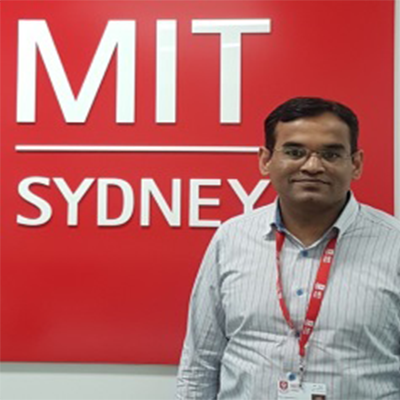
Dr Wanod Kumar
Senior Lecturer in the School of IT and Engineering (SITE)
Dr Wanod Kumar received his B.Eng. degree from Mehran University of Engineering and Technology in Jamshoro, Pakistan, and his MSc. and Ph.D. degrees in Wireless Communications from the University of Leeds, UK He is currently working as a Senior Lecturer in the School of IT and Engineering (SITE) at the MIT Sydney Campus. He has also served as a Senior Cyber Security Analyst with the Australian government. In the past, he worked as a senior academic at Mehran University in Pakistan. His research interests include cyber security and its applications, energy-efficient wireless networks, and IoT and its applications.
OUR STAFF ARE LEADING INDUSTRY EXPERTS
Our school attracts some of the best minds in the fields of Engineering and Networking. Our staff are industry experts. They drive research in the field and they bring energy to the classroom.

Dr Wanod Kumar
Senior Lecturer in the School of IT and Engineering (SITE)
Dr Wanod Kumar received his B.Eng. degree from Mehran University of Engineering and Technology in Jamshoro, Pakistan, and his MSc. and Ph.D. degrees in Wireless Communications from the University of Leeds, UK He is currently working as a Senior Lecturer in the School of IT and Engineering (SITE) at the MIT Sydney Campus. He has also served as a Senior Cyber Security Analyst with the Australian government. In the past, he worked as a senior academic at Mehran University in Pakistan. His research interests include cyber security and its applications, energy-efficient wireless networks, and IoT and its applications.
Join a Supportive Network
When you study with us, you’ll make friends and industry connections that last a lifetime. Our welcoming student support team will help you start your career on the right foot and stay in touch as your career progresses. Our alumni network is active and encouraging.
WE CARE ABOUT YOUR FUTURE
At MIT you’re more than a number. Our teachers know students by name. And our teaching methods support and challenge you to reach your potential.
Our care goes beyond the classroom. We ensure students have the support and skills they need to succeed in life and study.
We understand that choosing a course can be daunting at times. Our friendly student support service is there to answer your questions.
Let’s get started. Call us today.
At MIT you’ll experience great teaching in a supportive environment. And you’ll graduate with the skills you need to succeed.
Call our friendly student services team today to discuss your learning journey on +61 3 8600 6700.



